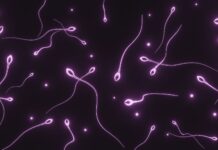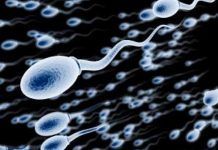Affiliate Disclaimer
Some links in this article are affiliate links. We may earn a small commission if you make a purchase through these links, at no extra cost to you. We only recommend products we find useful to our readersIn a world with so much pollution, it is not surprising that every single object we come in contact with might have potent contaminants on them. While you might limit your thoughts and adversities to a simple cold and cough, a new study seems to state otherwise.
A new study (R) conducted by the researchers from the University of Nottingham state that the natural environmental contaminants that we often do come across in our homes do have negative impacts on the fertility in men as well as the domestic dogs.
If the statistics are to be believed, they do suggest that there has been a rapid decline in the sperm quality in men by 50% in the last 80 years all across the globe.
There have been prior studies conducted by the researchers from the Nottingham University also provided evidence in the decline of the sperm quality in domestic dogs as well. This was what ended up causing an intriguing possibility of whether or not the modern day chemicals used in the home could be a contributing factor for the same.
In this conducted study, the researchers worked around to test two of the most commonly used human made chemicals used in homes, namely common plasticizer DEHP which is used in the cleaning of the carpets, upholstery, wires, toys etc. along with the polychlorinated biphenyl 153.
The researchers conducted a similar test for both the chemicals in which they collected the sperm samples from men and dogs from the similar bout of UK. Upon getting the results, the researchers found that at concentrations meant at the environmental exposure, there were significant damaging impacts on the sperm of both the men as well as the dogs.
Richard Lea, Associate Professor and Reader in Reproductive Biology at the School of Veterinary Medicine and Science, who also led the work, did suggest that this was a supportive explanation for their findings concerning the fact that dogs are “sentinel” for the decline in the men reproductive life. He further suggests that the study also affirms the fact that the chemicals used in the home cleaning and hygiene could very well be a contributing factor to the sperm quality in both men as well as dogs.
In previous studies, it has been found that the chemical pollutants which were priorly found in the sperm of the adult dogs along with that in some of the pet foods did have quite a negative impact on the sperm function of the male reproductive tract. This study is the very first to test out two of the potent chemical messengers that have been found to have negative impacts on the sperm quality in both men and dogs.
Rebecca Summer, who carried out a similar research for her PhD paper did suggest something similar. She found in her studies that for both men and dogs, the impact did conduct around a reduced amount of sperm motility as well as increased fragmentation of the DNA.
It is not surprising to know and understand for a fact that when the human sperm motility is poor, DNA fragmentation is increased accordingly. Additionally, the affected male fertility is often associated with the constant DNA damage in the sperm.
Currently, the researchers also do believe that similar impacts are drawn to the pet dogs as well owing to the fact that they are exposed to the similar household chemical pollutants altogether. They further believe that dogs could actually be a potent model for further future studies in this regard to find the negative impacts imposed by these household contaminants on the declining fertility in men.



















